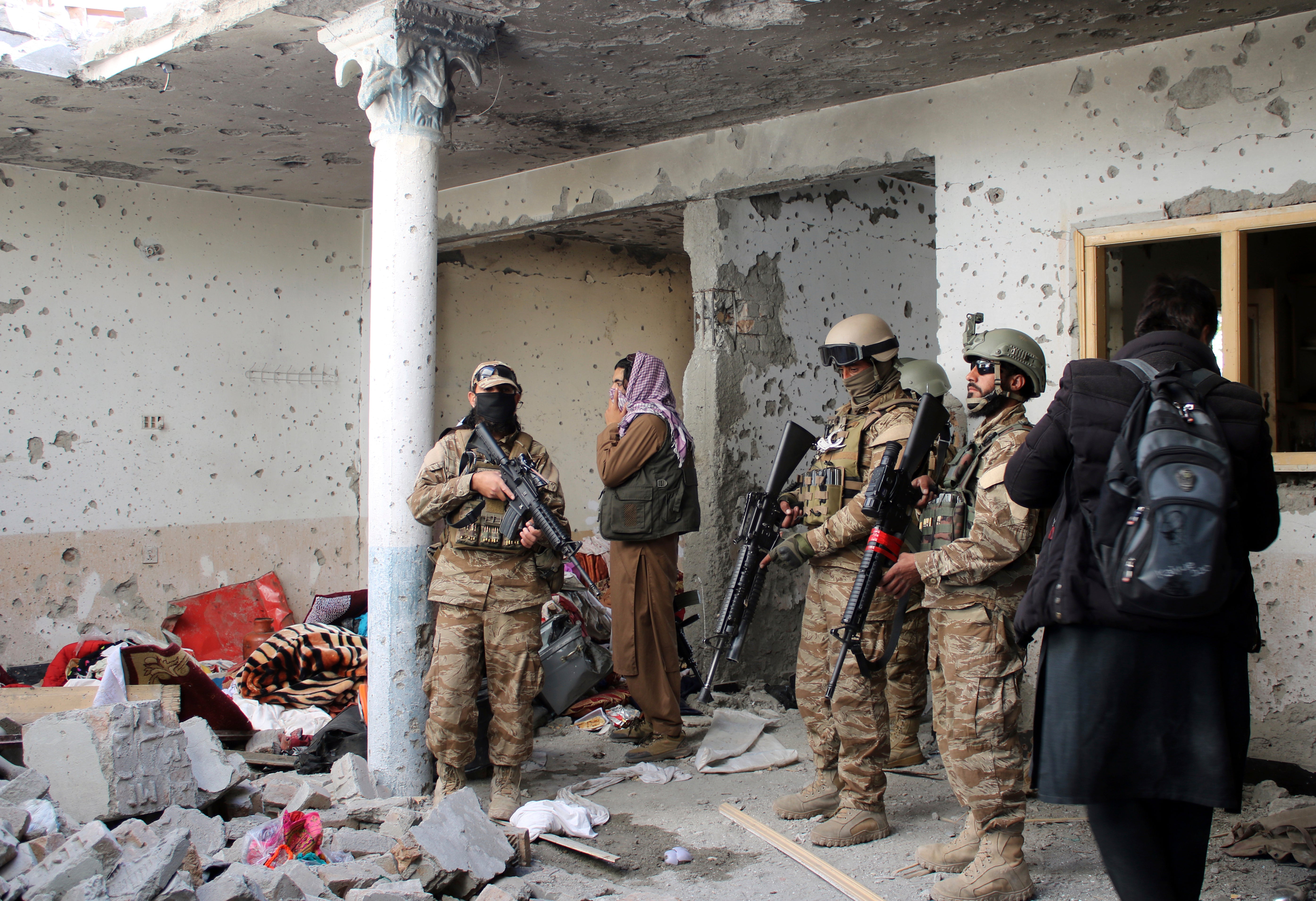Taliban killed or forcibly ‘disappeared’ over 100 ex-security personnel, says report
Taliban hunted down former officers using employment records left behind by Ghani government

Your support helps us to tell the story
From reproductive rights to climate change to Big Tech, The Independent is on the ground when the story is developing. Whether it's investigating the financials of Elon Musk's pro-Trump PAC or producing our latest documentary, 'The A Word', which shines a light on the American women fighting for reproductive rights, we know how important it is to parse out the facts from the messaging.
At such a critical moment in US history, we need reporters on the ground. Your donation allows us to keep sending journalists to speak to both sides of the story.
The Independent is trusted by Americans across the entire political spectrum. And unlike many other quality news outlets, we choose not to lock Americans out of our reporting and analysis with paywalls. We believe quality journalism should be available to everyone, paid for by those who can afford it.
Your support makes all the difference.The Taliban have summarily killed or forcibly “disappeared” more than 100 former police and intelligence officers since seizing power in Afghanistan, a report by Human Rights Watch has said.
The report published on Tuesday suggested that despite announcing amnesty, the Islamist militants continued to retaliate against the armed forces of the ousted Ashraf Ghani government.
The Taliban have hunted down former officers using employment records left behind by the erstwhile government and have targeted those who surrendered and received letters guaranteeing their safety, the report added.
Members of the Afghan National Security Forces (ANSF) had been told to register themselves to receive a letter guaranteeing their safety. Those who registered were screened for ties to military, police, militia and were then detained and executed, or disappeared by the Taliban fighters.
In some provinces, Taliban commanders have reportedly drawn up lists of people to be targeted for committing acts deemed “unforgivable”.
“The pattern of the killings has sown terror throughout Afghanistan, as no one associated with the former government can feel secure they have escaped the threat of reprisal,” the rights body said.
The report was put together based on 67 interviews, including 40 in-person interviews conducted in Ghazni, Helmand, Kunduz, and Kandahar provinces in Afghanistan. But the cases “reflect a broader pattern of abuses” reported in other provinces, it said.
“The Ghani government collapsed so quickly that documents related to the security forces and those who cooperated with them were left behind,” the report added. “Taliban forces ... were able to obtain not only data on employees but also information on those who might have acted as informants.”
The Afghan government fell on 15 August after the Taliban laid siege on Kabul following the United States’ withdrawal of troops, ending a two-decade-long war.
The Taliban takeover forced former president Ghani to flee the land-locked country, which he later described as the only way to “keep the guns silent and save Kabul and her 6 million citizens”.
The Taliban have also carried out search operations, including night raids, to apprehend suspected former officials. During raids, families are often threatened and abused into revealing the whereabouts of those in hiding.
“Taliban night raids are terrifying. They are conducted on the pretext of disarming ex-security forces who have not surrendered weapons. Those that ‘disappear’ are [victims] of night raids,” a civil society activist from Helmand province told the rights body.
According to the report, the forces have also targeted people they suspect of supporting the Islamic State group Isis-K. The Islamic State Khorasan Province, referred to as Isis-K, is the terror outfit’s eastern wing prevalent in Afghanistan.
Recently in Jalalabad, an eight-hour gunbattle erupted when Taliban forces raided a suspected hideout of Islamic State militants.
“The Taliban leadership’s promised amnesty has not stopped local commanders from summarily executing or disappearing former Afghan security force members,” said Patricia Gossman, associate Asia director at Human Rights Watch. “The burden is on the Taliban to prevent further killings, hold those responsible to account, and compensate the victims’ families.”
On 21 September, the Taliban announced the establishment of a commission to investigate reports of human rights abuses and other crimes. But the commission has so far only announced arrests of a few members for theft and the dismissal of others for corruption.
Join our commenting forum
Join thought-provoking conversations, follow other Independent readers and see their replies
Comments